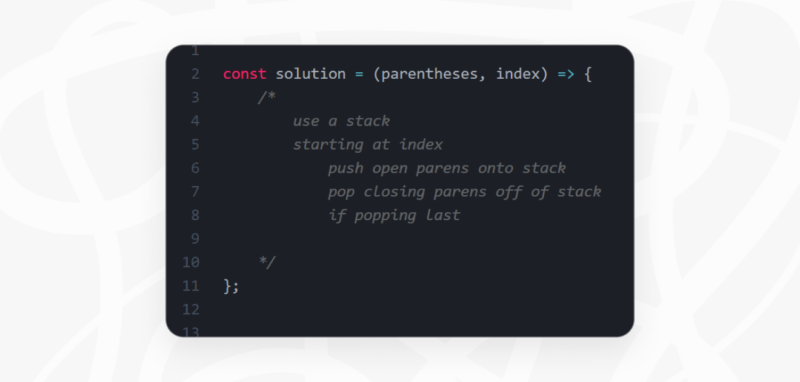
How to Prepare for Your Technical Phone Screening
So, you’re a software developer looking for work and have a technical phone screening lined up. First of all: congratulations! Even though there are plenty of potential jobs out there right now, there’s also lots of competition. Celebrate the fact that your CV, networking, and determination caught someone’s eye.
What is a technical phone screening?Now, onto fundamentals: what is a technical phone screening? If your guess is that it’s pretty much what it sounds like, you’re correct. More focused than a general phone interview, a technical phone screening is another filter before candidates reach a live interview. It’s a voice-to-voice conversation with someone in the company – who has and is looking for – technical knowledge. Of course, the soft skills you’ve been honing throughout the job search are still important, but now is the time to ensure your ability to articulate technical information and prowess is also on point.
1. Practice Articulating Your ProcessLet’s assume you’re already updating and practicing technical skills: language-learning, code-writing, bug-testing, and problem-solving. But are you practicing voice-to-voice communication?
It’s one thing (and a great thing!) to know what you know in your head. Maybe you can build a webscraping application in Python that catalogs 30 years worth of Canadian hockey statistics in your sleep. Awesome. But if you aren’t able to thoughtfully and succinctly articulate this skill, you’re not going to make it to the next round.
The only way to practice talking about what you know is to talk about what you know.
Now is the time to ask a favor from friends, classmates, or peers who have similar skills and technical knowledge. Have them dial you up or meet you in person to practice voice-to-voice question-and-answer conversations over technical information.
Keep in mind, one thing interviewers are listening for is an articulation of your thought process. Go ahead and think aloud, which demonstrates your comprehension and logic jumps while problem-solving.
*Lemons to lemonade tip: it may take several tries with real-life technical phone screenings to make the cut to an interview. This is normal and you can view each technical phone screening as an opportunity for more practice.
2. Be ResourcefulUnless you’re simply overqualified for the position, no matter how much you prepare, you may get stumped by the specific technical problem you’re asked to solve. This is fine; it’s probably expected. The purpose of pushing you beyond your capabilities is not about disqualification: it’s about testing your response.
If you aren’t already familiar with “grit” as a developer, let’s get you up to speed. Grit, as a definition, is “courage and resolve; strength of character.” And as a characteristic, grit is a great indicator of achievement. Developers, especially, need a healthy possession of grit when regular failures are par for the course.
Let’s say, to expand on the previous example, you can build a webscraping application in Python that catalogs 30 years worth of Canadian hockey statistics in your sleep. Let’s say this landed you a technical phone screening for work doing just this thing. You may be given a problem that is technically too difficult to immediately solve for and the person giving your interview likely doesn’t expect you to.
What they’re looking for is whether you have the right approach to solving the problem: how you’re thinking about the problem and whether you can communicate your process. Where you’re stuck and what your approach would be to solve it.
3. Prepare with Questions of Your OwnHere’s a hint from a hiring manager’s perspective: it’s not a good sign when the candidate hasn’t prepared questions of their own.
In addition to demonstrating and articulating technical skills and general professionalism, prepare for your technical phone screening by learning everything you can about the company, the role, and your own ambitions. Prepare some questions based on what you discover.
The company
Yes, you are hoping to be a fit for the company. But is the company is a fit for you? Find out everything you can about its history, mission statement and values, and HR policies. Do your own research first and don’t be afraid to take it further with questions. Consider asking your interviewer about their own experience with the company.
The role
Is this a new position? Or is it an existing one with frequent turnover? Is it part of a bigger team? Who will you be collaborating with and/or reporting to? What resources are available when you need support? Are there opportunities for professional development, education, and growth? What technologies, frameworks, and tools are they currently using?
You
Sometimes, in the hustle of a job search, we spend so much time contorting ourselves into the shape of what’s available, we forget to ask if it’s a shape we want to be in. You are in an ever-evolving, fast-paced industry. Yes, there’s lots of competition, but there are also more options than ever before to pave the road you want to be on.
Take a moment to reflect on where you’ve been, where you are, and where you want to go. Prepare questions based on these experiences. Searching for a job is an opportune time to make conscious, proactive decisions about your career before you find yourself stuck in a role that may lead you to somewhere you don’t want to be.
Ready for your technical phone screening?Use these three steps to prepare for the technical phone screen interview portion and you’ll feel more confident:
- Articulate your process
- Be resourceful
- Prepare questions of your own
Confidence is appealing and goes a long way toward building rapport with an interviewer. Thoughtfully review your resume against the job description, find common areas of experience or problem-solving, and be prepared to explain how you applied your tech stack to them.
Related: Read our guide for recruiters and start-ups preparing them to phone screen candidates.
If you’d like to streamline your job search and have employers come to you, see how Hired helps tech and sales talent find their next role.
Originally published October 2019. Revised January 2022.
Related blog posts

30 Behavioral Interview Questions You Should Be Ready to Answer
Use these 30 examples of behavioral interview questions to practice If you’re heading into...

7 Interview Questions You Never Have to Answer (& How You Should Respond)
When you’re interviewing for a job — and particularly one you really want — it can be tempting to...

8 Final Round Interview Questions You Should Be Prepared for as a Tech Jobseeker
Be ready for common final round interview questions with this guide Congratulations –...

Curious about a Career in DevOps? How to Prep for Strong Interviews
Hired welcomes guest contributor Vyacheslav Nikitan, the Lead DevOps Trainer at NIX United, to...

How to Answer “Tell Me About Yourself” Interview Question for Tech Talent
How to ace the number one question in interviews for tech roles, like software engineers –...

Inside the Coding Challenge: A Hiring Manager’s Perspective
At Hired, we often have opportunities to share assessment insights with employers who review them...

